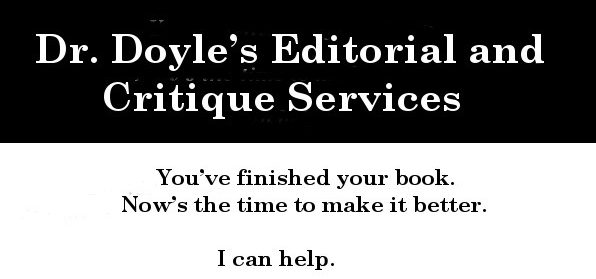One of the hardest things to do, in the writing business, is proofreading your own text. I know that every time I give a story or a novel the final run-through before printing it out or e-mailing it, I worry that I’m going to miss something — an “untied” where there should be a “united”; a sentence that should have a period at the end of it but somehow mysteriously doesn’t (cut and paste is great for revising, but sometimes not everything gets picked up when it should); a “not” that’s gone missing, to the complete and utter detriment of the intent of an entire paragraph, if not the whole work.
One reason the final proofing is so hard is that by the time you reach that stage of the project, you’ve already read every sentence in it multiple times, and your brain is going to take advantage of that experience to helpfully supply anything that might be missing, and correct anything that might be wrong. To fight against that, writers do all sorts of things to counteract the familiarity of the text — have a text-to-speech program read it aloud; make a printout if they’ve been working only on-screen; change the page from the standard double-spaced publisher’s-guidelines layout to double columns; and my own favorite, change the font.
For work like this, you don’t want a pretty font. You want one that’s almost aggressively in-your-face with its distinctive letterforms, one where the errors are going to leap off the page at you and go for the throat.
One such font is Lexia Readable; it’s also good for printing out a text you’re going to be reading aloud from. Another good proofing font is DPCustomMono2, which was originally developed for proofreading OCR-generated texts. But any font will do in a pinch, so long as it isn’t the one you’ve been reading the text in all along.

